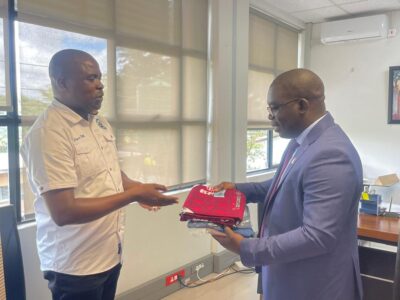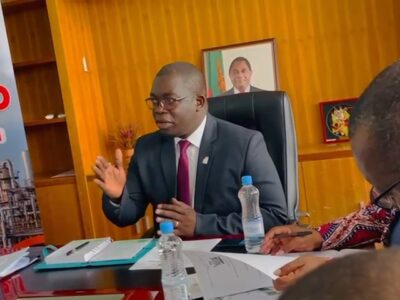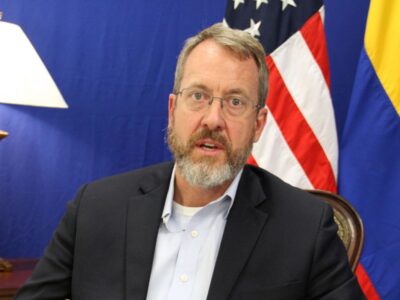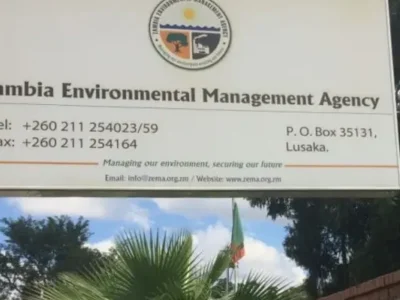The Adhoc Expert Group Meeting (AEGM) organised by the United Nations Economic Commission for Africa (UNECA) has opened here in Gaborone, Botswana, with a focus to accelerate implementation of the African Continental Free Trade Area (AfCFTA), tackle poverty and inequality in Southern Africa.
Experts are from the areas of socioeconomic development, poverty, inequality and vulnerability.
These were drawn from government, regional economic communities, academia, civil society, national and regional financial institutions, development partners, including United Nations agencies.
Read more: UN agency says Zambia’s mineral sector, value addition to fuel inclusive growth
UNECA Sub Regional Office for Southern Africa Director, Eunice Kamwendo, stated that the region continued to grapple with poverty, inequality and multiple vulnerabilities.

She said this was the reason why the sub-region was performing poorly in all metrics of poverty and inequality.
Kamwendo pointed out that Southern Africa was the poorest on the continent both in terms of monetary and multidimensional measures of poverty, with about half of its population living in extreme poverty.
She indicated that poverty threatened the attainment of most Sustainable Development Goals (SDGs) and agenda 2063 as it encompassed deprivations in virtually all aspects of human development.
The symptoms of challenge in development processes include poor metrics on life expectancy, literacy, education, income, standards of living and quality of life, among others.
“The subregion is also the most unequal of all regions in the world both in terms of distribution of income and wealth, with six of the ten most unequal countries in the world,” Kamwendo said.
She also spoke on the economic diversification and value addition, stating that this was the only way that the region can spur inclusive economic growth and development.
“Some of the strategies will be on private sector development with a special focus on Micro, Small and Medium-sized Enterprises (MSMEs) including strengthening their capacities and local content policies,” Kamwendo said.
She further stated that deepening regional cooperation through collaborative efforts among Southern African countries to address common challenges that perpetuate poverty and inequality remained critical.
Kamwendo said it was important to accelerate intra-regional trade through the AfCFTA, Regional Economic Communities (RECs), Free Trade Areas (FTA) and infrastructure development aimed at reducing transaction costs within the sub-region.
She also emphasized the need to strengthen governance and accountability system including ensuring equitable allocation of resources.
“Expanding social protection programmes and addressing social exclusion by promoting gender equality and empowerment of historically disadvantaged, including women and youths, through targeted policies and programmes is important,” Kamwendo said.
Botswana Ministry of Trade and Industry Permanent Secretary, Ellen Richard-Madisa, said the AfCFTA was seen as an initiative that would contribute to fighting poverty and inequality across the nation.

“As you are aware, the AfCFTA offers immense opportunities to anchor industrial development and industrialisation. This is accompanied by linkages along the various value chains and the creation of sustainable jobs for the youth and women entrepreneurs leading to higher incomes,” Richard-Madisa said.
She added that there was need to strengthen interface between the protocols of the Regional Economic Communities and the AfCFTA protocols.
On poverty, Richard-Madisa said Botswana had transitioned from one of the poorest countries to an upper middle-income country, stating that the government continued to allocate resources towards poverty and inequality eradication.
Speaking at the same event, Botswana United Nations Regional Coordinator, Zia Choudhury, said: “ We anticipate the formulation of well-informed policy recommendations that will enhance AfCFTA’s role in addressing poverty and inequality in Southern Africa.
“We look forward to gaining an enhanced understanding of these issues and sharing knowledge on poverty reduction, inequality mitigation and fostering regional economic integration that will benefit all member states.”
Outgoing Chair-Bureau of ICSOE and Mozambique Permanent Secretary, Jorge Fernando Jairoce, said during his tenure, they faced a number of challenges which included limited availability of official statistical data impacting on the delivery of the analytical and research work, especially on emerging issues of priority to member states.

WARNING! All rights reserved. This material, and other digital content on this website, may not be reproduced, published, broadcast, rewritten or redistributed in whole or in part without prior express permission from ZAMBIA MONITOR.













Comments